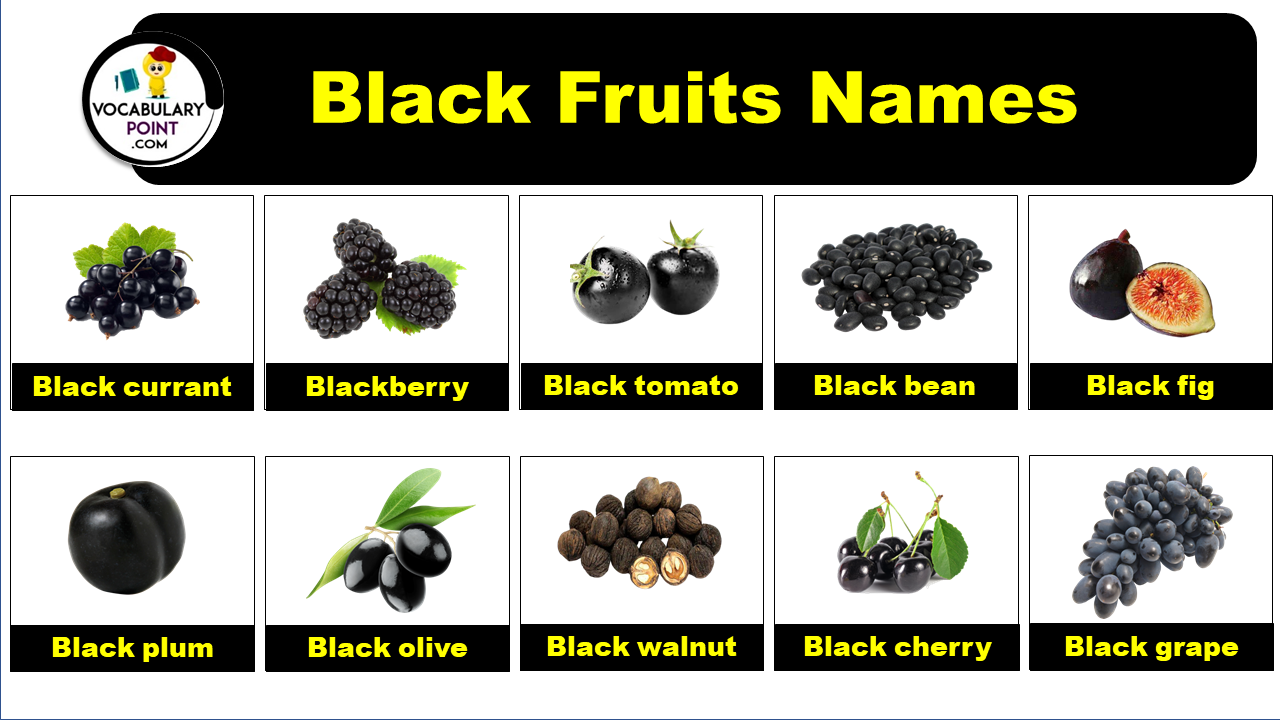Black fruits are not only visually striking and beautiful, but they also offer a plethora of health benefits. From their rich antioxidants to their unique flavors, black fruits have become increasingly popular among health-conscious individuals. Whether you’re a food lover looking to expand your culinary palette or a nutrition enthusiast in search of new superfoods, this comprehensive black fruits name list will introduce you to the diverse world of these delicious and nutrient-packed treats.
Black Fruits Names
Black Mustard Seed
Small, spicy seeds used in cooking and for their oil. Adds a pungent flavor to dishes.
Black Passionfruit
A variety of passionfruit with dark purple skin, known for its aromatic and tangy-sweet flesh.
Black Currant
Small, tart, black berries rich in vitamins C and A, potassium, and antioxidants. Used in juices and jams.
Black Chickpea
A darker, smaller variant of the common chickpea, with a robust flavor. Used in various cuisines.
Black Mulberry
Fruits of the mulberry tree, sweet and slightly tart, ranging in color from dark purple to black. Used in various cuisines.
Black Elderberry
Small, dark berries known for their immune-boosting properties. Often used in syrups and jams.
Black Salsify
A root vegetable with black skin and white flesh, known for its oyster-like flavor when cooked.
Black Sapodilla
A tropical fruit with a rough exterior and sweet, dark brown flesh. Eaten fresh or used in desserts.
Black Coffee Beans
Roasted coffee beans with a rich, dark color. Used to brew coffee, known for their stimulating effects.
Blackberry
Juicy, dark berries known for their sweet and slightly tart flavor. Rich in vitamins C and K, and fiber.
Black Tomato
A variety of tomato with dark, purplish-black skin, known for its rich, sweet flavor.
Black Sapote
A tropical fruit resembling a green tomato, with chocolate-pudding-like flesh. Sweet and custard-like, used in desserts.
Black Fig
A variety of fig with dark purple to black skin and sweet, red flesh. Eaten fresh or dried.
Black Cumin
Small, dark seeds with a bitter taste, used as a spice in cooking and for medicinal purposes.
Black Persimmon
A variety of persimmon with dark, almost black skin, and sweet, rich flesh.
Black Passion Fruit
Another name for black passionfruit, known for its aromatic and tangy-sweet flesh.
Black Caraway
Also known as nigella seeds, these are small, black seeds with a slightly bitter, peppery flavor.
Black Cranberry
A term that might refer to dark varieties of cranberries or a misnomer for another dark berry.
Black Peppercorn
The dried fruit of the pepper plant, used whole or ground as a spice. Adds heat and flavor to dishes.
Black Pecan
Refers to pecans with a darker shell, or possibly a pecan variety. Rich and sweet in flavor.
Black Plum
A type of plum with dark purple to black skin and sweet, juicy flesh.
Black Nightshade
A plant with edible, small, black berries when ripe. Must be consumed ripe to avoid toxicity.
Black Corn
A variety of corn with dark, sometimes black kernels. Used in traditional dishes and for popcorn.
Black Nightshade Berry
The ripe, edible berry of the black nightshade plant. Sweet and used in some cuisines.
Black Tamarind
Refers to a darker variety of tamarind or the pulp of tamarind, which is dark and used in cooking.
Black Walnut
A type of walnut with a rich, distinctive flavor, and a hard, dark shell. Used in baking and cooking.
Black Grape
Dark-skinned grapes, ranging in flavor from sweet to tart. Used in wines and as table grapes.
Black Lentil
Also known as Beluga lentils, these are small, black, and resemble caviar when cooked. Rich in protein.
Black Olive
Olives that are fully ripe when harvested, with a rich, savory flavor. Used in cooking and as garnishes.
Black Mullberry
Likely a misspelling of “Black Mulberry,” referring to the dark purple to black fruits of the mulberry tree.
Black Salt
Also known as Kala Namak, it’s a pungent-smelling salt used in South Asian cuisines, with a black to pinkish color.
Black Gooseberry
A term that may refer to dark varieties of gooseberries or a misnomer for another berry.
Black Raspberry
Small, black berries known for their sweet and slightly tart flavor. Rich in vitamins and antioxidants.
Black Sugar Apple
A variety with dark, blue-black skin, not widely known and possibly confused with similar fruits.
Black Quince
Refers to a quince variety with darker flesh, used in jams, jellies, and cooking for its aromatic flavor.
Black Cocoa Beans
Fermented, dried, roasted seeds of the cacao tree, used to make cocoa powder and chocolate.
Black Guava
A term possibly referring to a darker-skinned variety of guava, known for its sweet, pink or white flesh.
Black Tea Leaves
Leaves of the Camellia sinensis plant, fully oxidized to produce a dark color and strong flavor.
Black Bean
Small, black legumes, high in protein and fiber. Used in various cuisines around the world.
Black Macadamia Nut
A term that might refer to the shell color or a roasted version of the macadamia nut, known for its rich, buttery flavor.
Black Sesame
Small, black seeds with a nutty flavor, used in cooking and as a garnish. Rich in nutrients.
Black Chokeberry
Small, dark berries from the Aronia plant, known for their tart flavor and high antioxidant content.
Black Lemon
Dried lime, used in Middle Eastern cuisines for its sour, fermented flavor.
Black Mission Fig
A popular variety of fig with dark purple to black skin and sweet, rich flesh.
Black Juneberry
A variety of Juneberry with dark purple to black fruits, sweet and similar in taste to blueberries.
Black Cardamom
A large, smoky-flavored spice used in savory dishes. The pods are dark brown to black.
Black Crowberry
Small, black, edible berries from the Empetrum nigrum plant, found in cold climates.
Black Cherry
A variety of cherry with dark, purple-black skin, known for its sweet and rich flavor.
Black Apple
A term that might refer to apple varieties with dark-colored skin, rare and prized for unique flavors.
Blackberry Lily
The seed cluster of the Iris domestica plant, resembling a blackberry; mainly ornamental.
Black Hazelnut
Refers to hazelnuts with a darker shell or skin, known for their sweet and nutty flavor.
Black Pitaya
Also known as dragon fruit, specifically varieties with dark outer skin, known for its mild, sweet taste.
Black Velvet Tamarind
A type of tamarind with a dark, velvety shell, used in traditional African medicine and cuisine.
Black Huckleberry
Small, black wild berries, similar to blueberries, with a sweet and tart flavor. High in antioxidants.
Black Quinoa
A variety of quinoa with black seeds, known for its nutty flavor and high protein content.
Black Rice
Also known as forbidden rice, it has a deep, dark color and high nutritional value. Rich in antioxidants.
Explore More Fruits Names:
Seedless Fruits | Smallest Fruits | Sour Fruits
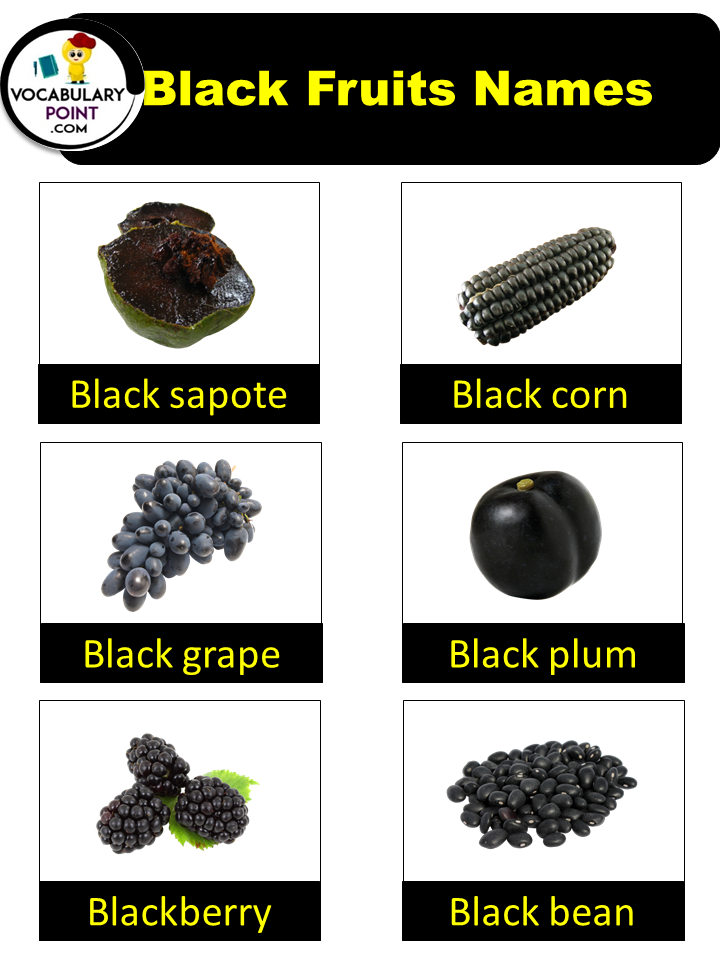
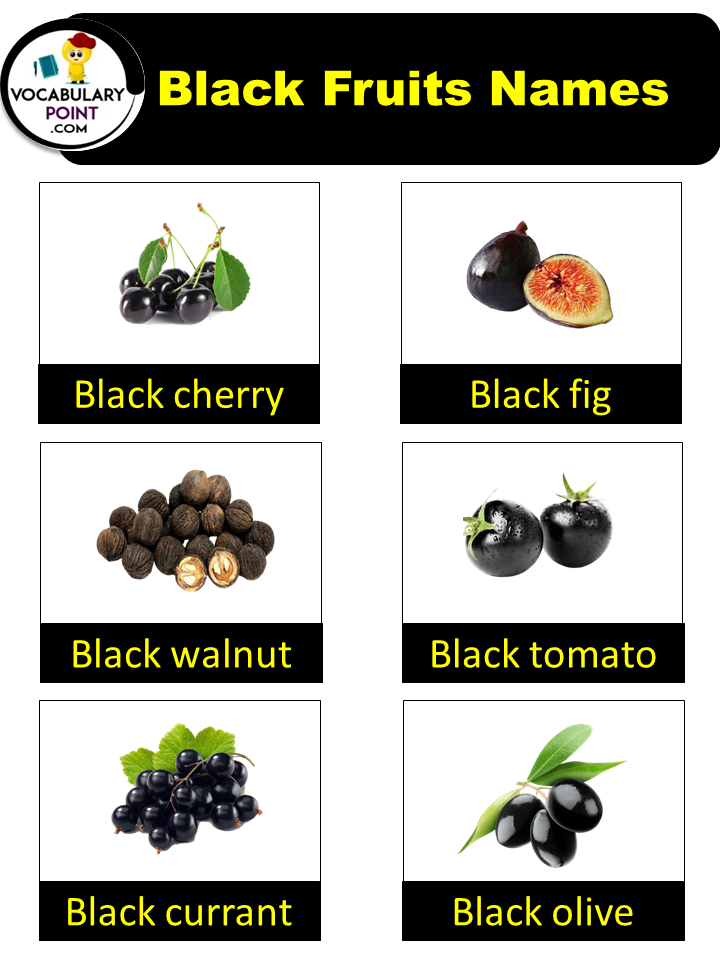
List of Black Fruits
Black sapote
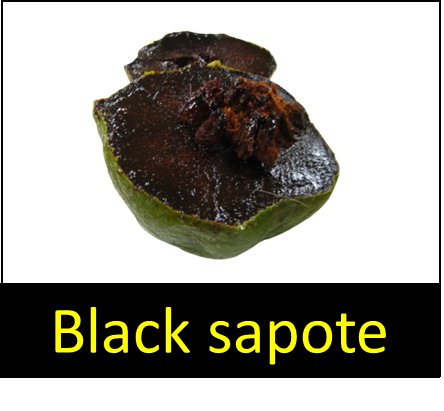
- Nutrient-Rich Goodness:
Black sapote, often called the “chocolate pudding fruit,” is a nutritional powerhouse brimming with vitamins, minerals, and antioxidants. This tropical delight provides essential nutrients like vitamin C, vitamin A, and potassium, supporting overall health and vitality.
Black corn
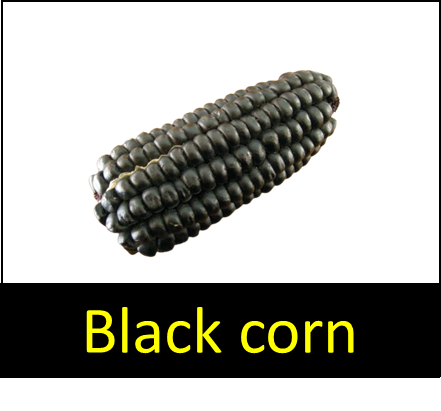
- Rich Source of Antioxidants:
Black corn is packed with a diverse range of antioxidants, including anthocyanins and phenolic compounds. These natural compounds help combat oxidative stress in the body, offering protection against various chronic diseases and supporting overall health.
Black grape
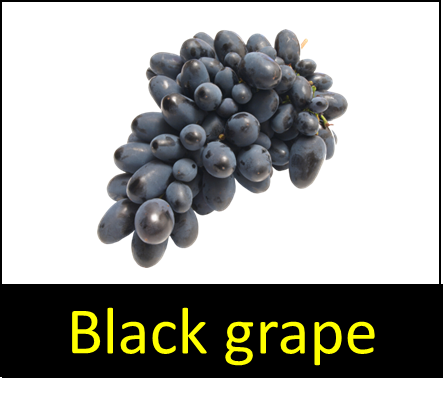
- Antioxidant Abundance:
Black grapes are a veritable treasure trove of antioxidants, particularly resveratrol. These compounds help protect cells from oxidative damage, potentially reducing the risk of chronic diseases and promoting overall health.
Black plum
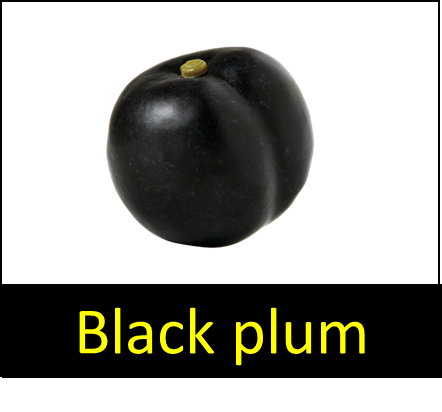
- Rich in Vitamins:
Black plums are a storehouse of essential vitamins, particularly vitamin C, which supports a robust immune system and enhances skin health. Additionally, they provide a good dose of vitamin K, essential for blood clotting and bone health.
Blackberry
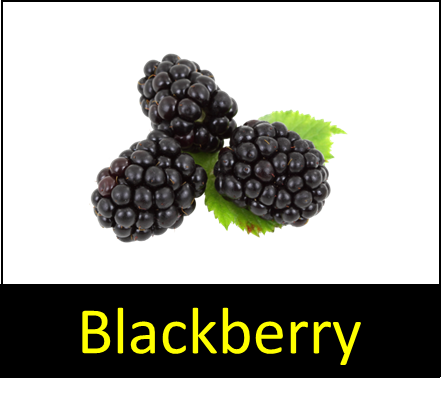
- Antioxidant-Rich:
Blackberries are abundant in antioxidants like anthocyanins, quercetin, and vitamin C, which help combat oxidative stress, reduce inflammation, and protect cells from damage, potentially lowering the risk of chronic diseases.
Black bean
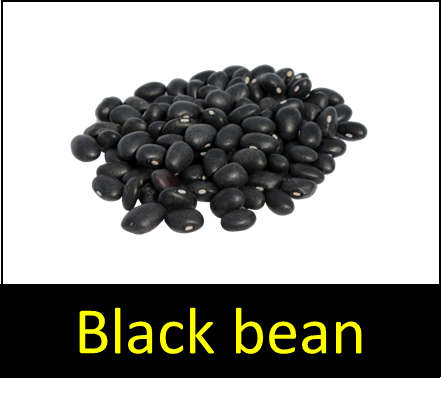
- Rich Protein Source:
Black beans are a high-quality plant-based protein, offering essential amino acids necessary for muscle repair and overall bodily function, making them an excellent choice for vegetarians and vegans.
Black cherry
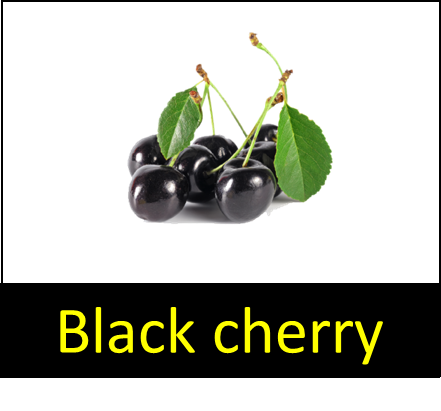
- Antioxidant Powerhouse:
Black cherries are packed with antioxidants, particularly anthocyanins, which help combat oxidative stress, reduce inflammation, and protect cells from damage, potentially lowering the risk of chronic diseases.
Black fig
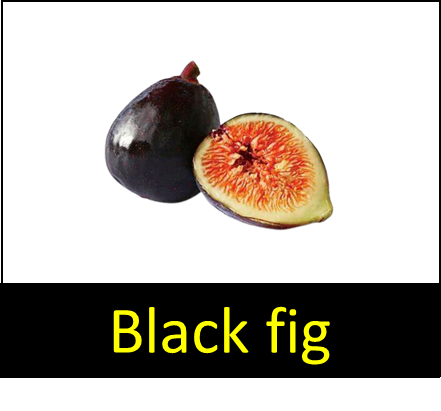
- Dietary Enrichment:
Black figs are a nutritional treasure trove, boasting a rich content of essential vitamins, minerals, and dietary fiber, making them a valuable addition to a balanced diet.
Black walnut
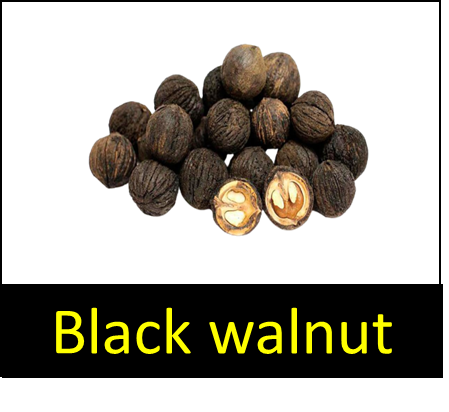
- Brain Health Support:
Black walnuts are a source of nutrients like omega-3 fatty acids and antioxidants that may help protect brain cells and support cognitive function, potentially reducing the risk of age-related cognitive decline.
Black tomato
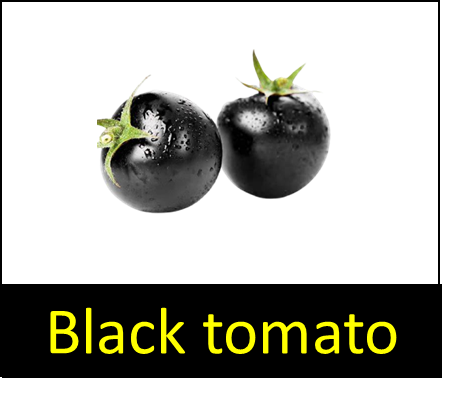
- Antioxidant Richness:
Black tomatoes are teeming with antioxidants, particularly anthocyanins and lycopene, which help combat free radicals, reduce inflammation, and protect against cell damage, potentially lowering the risk of chronic diseases.
Black currant
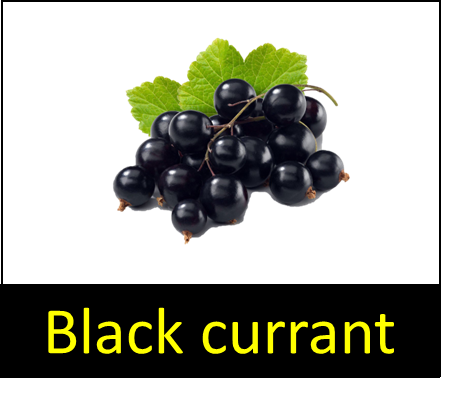
- Immune System Support:
Black currants are rich in vitamin C, which boosts the immune system’s defenses, helping the body fend off illnesses and infections.
Black olive
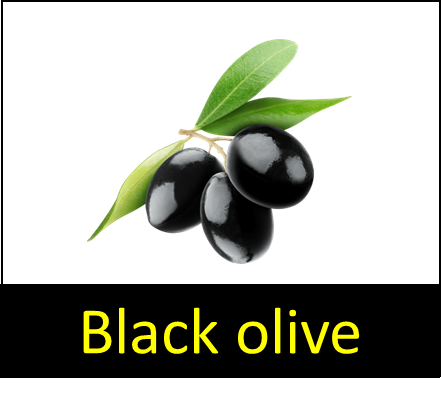
- Heart-Healthy Monounsaturated Fats:
Black olives are a good source of monounsaturated fats, which can help lower bad cholesterol levels and reduce the risk of heart disease when incorporated into a balanced diet.
